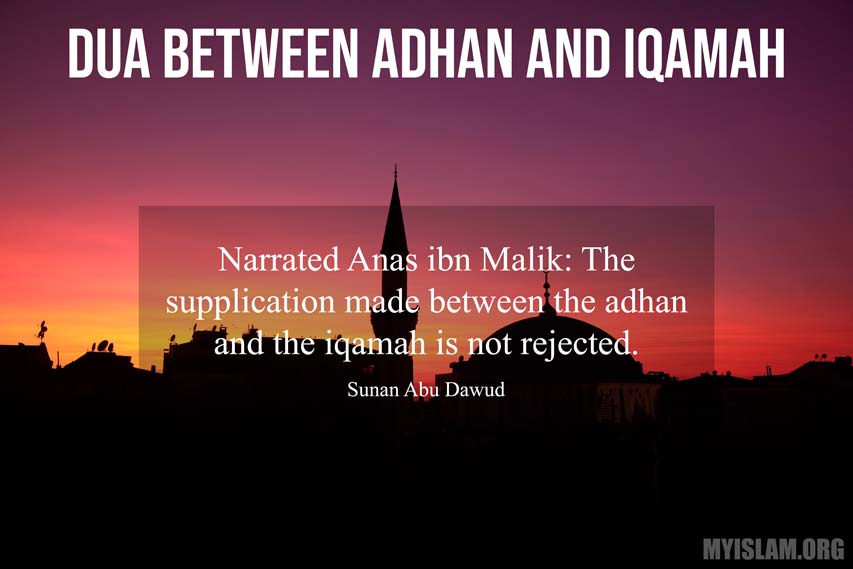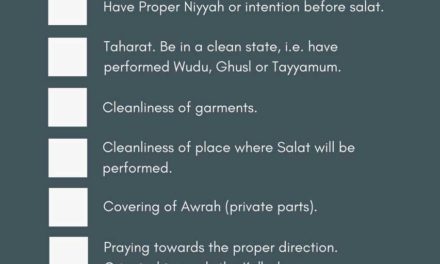
The adhan is the call to prayer for congregational salah.
The entire Muslim community hears the adhan five times a day and echoes the call to prayer glorifying Allah in unity. The adhan serves as a beautiful reminder to all Muslims of their duties towards their creator.
In life it’s easy to get distracted with many things pulling us in a hundred different directions. The adhan is a tool for the believer to re-focus and center their true purpose in this life.
In the hadith it mentions that when the adhan is pronounced Shaitan is so filled with fright that he runs away as to avoid hearing it. [1]
It was also mentioned in Sunan Abu Dawud, that a dua made in between the adhan and iqamah is never rejected. [2]
This interval between the adhan and Iqamah is a blessing from Allah and we should take full advantage of it.
There is a reason right after the Adhan is pronounced that there is a break before the Iqamah. It’s not so we can go on our phones and check our Facebook status or see our Twitter mentions.
That’s not the reason.
The delay is so we can make supplication to Allah to ask for whatever our hearts desires because during this time the dua is not rejected.
Is there a specific Dua the Prophet Used to Say?
You can recite any dua, the choice is yours to ask Allah for anything and there are many Sahih (authenthic) duas from hadith and many Duas listed in the Quran.
One of the easier and more popular duas to memorize is the Rabbana Atina Fid Dunya which asks Allah for success and all things good in this world and the hereafter.
In Jami at-Tirmidhi there is a narration which mentions a dua which the prophet used to recite immediately after the adhan was called.
Dua After Adhan
In Arabic, the dua after adhan is: [3]
اللَّهُمَّ رَبَّ هَذِهِ الدَّعْوَةِ التَّامَّةِ وَالصَّلاَةِ الْقَائِمَةِ آتِ مُحَمَّدًا الْوَسِيلَةَ وَالْفَضِيلَةَ وَابْعَثْهُ مَقَامًا مَحْمُودًا الَّذِي وَعَدْتَهُ
Transliteration: Allahumma, rabba hadhihidda ‘watit-tammati was Salatilqa’imah, ati Muhammadanil wasilata wal-Fadilata, wab’athhu Maqamun Mahmudan alladhi wa’adtahu
Translation: O Allah! Lord of this perfect call and established prayer, grant Muhammad Al-Wasilah and Al-Fadilah, and raise him to the praised station that you promised him.
Inshallah this article was informative to you and a step forward to helping you perfect your salah. May Allah reward your effort to wanting to learn and bless us and keep us on the straight path.
With every article we publish we do our best to make sure all information is authentic and factual, if you see any mistake on this article or any article please let us know in the comments. Jazakallah.
References:
[1] Allah’s Messenger (ﷺ) said, “When the Adhan is pronounced Satan takes to his heels and passes wind with noise during his flight in order not to hear the Adhan. When the Adhan is completed he comes back and again takes to his heels when the Iqama is pronounced and after its completion he returns again till he whispers into the heart of the person (to divert his attention from his prayer) and makes him remember things which he does not recall to his mind before the prayer and that causes him to forget how much he has prayed.” Sahih Al-Bukhari
[2] Narrated Anas ibn Malik: The supplication made between the adhan and the iqamah is not rejected. Grade: Sahih (Al-Albani) Sunan Abu Dawud and At-Tirmidhi.
[3] Jabir bin Abdullah narrated that : Allah’s Messenger said: “Whoever says, when he hears the call: (Allahumma, rabba hadhihidda ‘watit-tammati was Salatilqa’imah, ati Muhammadanil wasilata wal-Fadilata, wab’athhu Maqamun Mahmudan alladhi wa’adtahu) ‘O Allah! Lord of this perfect call and established prayer, grant Muhammad Al-Wasilah and Al-Fadilah, and raise him to the praised station that you promised him’ – then intercession on the Day of Resurrection is made lawful for him.” Grade: Sahih (Darussalam) At-Tirmidhi



